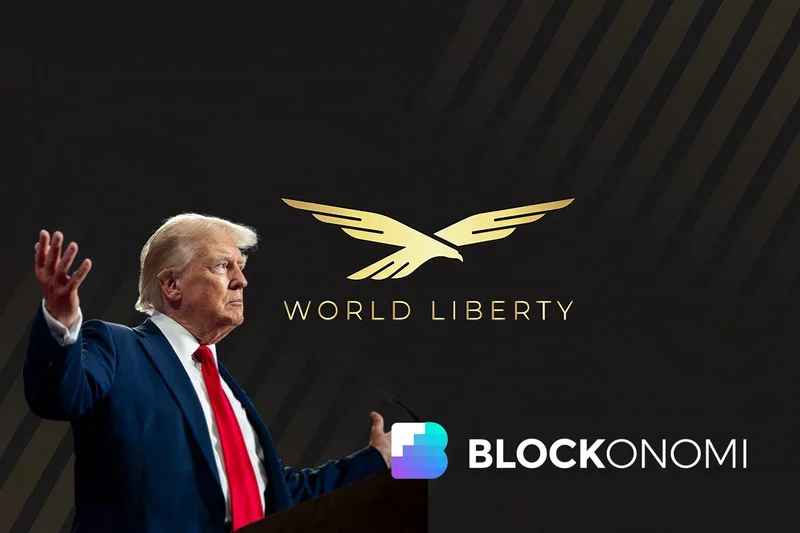Trump's Crypto Pardons: A Billion-Dollar Coin Flip
The Pardon Power: A Questionable Investment?
The pardon of Changpeng Zhao, the Binance founder, by former President Trump raises eyebrows. It's not just the optics of a billionaire (Zhao) seemingly getting a get-out-of-jail-free card after pleading guilty to money laundering violations. It's the potential quid pro quo, the nagging suspicion that this pardon was less about justice and more about… well, let's call it "mutually beneficial financial engineering."
The narrative, pieced together from the 60 Minutes report, goes something like this: Zhao's Binance, fresh off a $4 billion fine for failing to prevent money laundering, allegedly provided software to World Liberty Financial (WLF), a crypto venture linked to the Trump family. Then, an Emirati fund pumps $2 billion into WLF’s crypto. Shortly thereafter, Zhao gets a pardon. Trump pardon of crypto billionaire sparks concerns over his use of the pardon power
Correlation doesn't equal causation, as any intro stats course will drill into you. But the sequence of events is hard to ignore. Especially when you consider the source of the $2 billion.
The Emirati Connection: Business Suitability or Something Else?
The Emiratis claim they chose WLF for "business suitability." Right. Two billion dollars into a five-week-old crypto? That’s not just unusual; it’s statistically improbable. The source quoted as saying "it wasn't strange. It was nuts," nails it.
Consider the risk profile. Investing in crypto is already a high-volatility play. Investing billions into a brand-new stablecoin associated with a politically exposed family? That’s beyond high-risk; it's bordering on irrational. Unless, of course, the goal wasn't purely financial return.
Lessig's point about ingratiating oneself with the president rings true. It's not about a direct bribe; it's about creating a climate of goodwill, an unspoken understanding. It's like donating heavily to a politician's campaign – you're not guaranteeing a favorable outcome, but you're certainly increasing the odds.
And then there's the AI chip deal. Trump announces that the Emirates would invest in America and the U.S. would provide highly restricted AI chips. The report clarifies that there's "no evidence that the chips are related to the two billion in World Liberty crypto", but it's hard not to see the connections.

The question is: were the AI chips part of the deal? (And what was the real market value of these chips?)
Following the Money: The Real Returns
Here's where the numbers get interesting. The $2 billion deposited in WLF could be generating $80 million a year in interest for the Trumps and their partners. That's a 4% annual return (assuming my back-of-the-envelope calculation is correct). Not bad, especially considering that two billion represents most of WLF's deposits.
But it's not just about the interest. Zhao effectively controls WLF's fate. He has the power to pull the plug, to trigger a liquidity crisis. That gives him leverage, influence.
And here's the part of the report that I find genuinely puzzling: Why leave the money there? If Zhao's goal was simply to curry favor, why not withdraw the funds after the pardon was secured? The fact that the money remains suggests a deeper, ongoing relationship.
We don't know all the details of the agreement between Binance, WLF, and the Emirati fund. What are the terms? What are the exit clauses? Details on the actual contracts remain scarce, but the implications are clear.
A Clear Case of "Influence for Sale"?
This whole situation stinks of influence peddling. It's not necessarily illegal (proving a direct quid pro quo is notoriously difficult), but it’s ethically bankrupt. It erodes trust in our institutions, reinforces the perception that the rules don't apply to the wealthy and powerful. As Lessig said, "America is in jeopardy because of that because we already have a public that has lost faith in our government. Because all of us, whether Republican or Democrat or Independent, look at this system and say, "this is a corrupt system."
The White House denies any conflicts of interest. Eric Trump claims his father has nothing to do with WLF. But these denials ring hollow. The optics are terrible, and the numbers don't lie.
The Swamp is Alive and Well
It's a messy situation, and pinning down definitive proof is tough. But the circumstantial evidence is overwhelming. The pardon, the Emirati investment, the AI chips – it all adds up to a picture of a system where money talks, and politicians listen. It's a reminder that the "swamp," as it's often called, isn't just a D.C. phenomenon; it's a global ecosystem of power, influence, and financial self-interest.
